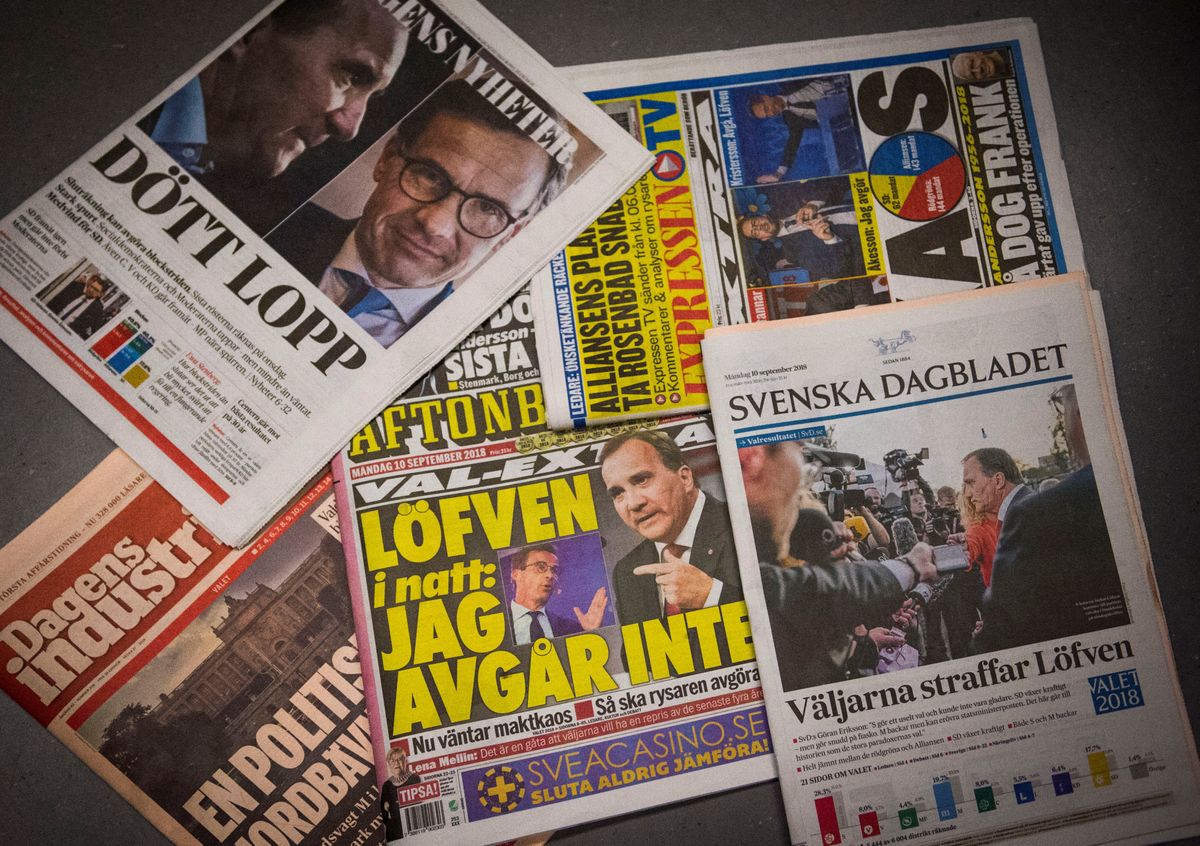In Sweden’s national elections over the weekend, the anti-EU, anti-immigrant Sweden Democrats continued their political rise, while the main center-left and center-right blocs suffered. Full tallies are here, but here are three quick thoughts on what this election tells us about the shifting political winds in Europe:
Right wing populism can thrive even where the economy is strong.
Explanations for the rise of populist, anti-establishment politics often look at income inequality, slow economic growth, or weak social safety nets. Sweden has none of those problems. The economy is growing faster than the EU average, and its society is among the most equal in Europe. Unemployment is low, the government runs a budget surplus, and social services are expansive. So what’s going on? Well, the government’s generosity is, in fact, precisely the reason for the backlash against foreigners. When the government does so much for a society, the question of who gets to belong to that society can become controversial very easily.
In recent years, Sweden has accepted more migrants per capita than just about any other EU country (see graphic below). And because Swedish policies give huge benefits to migrants while also (because of strong unions) making it difficult for them to find jobs, the Sweden Democrats have ably made the case to many voters that refugees are scarfing down a disproportionate share of the country’s generous social benefits without integrating or paying their way.
Sweden’s experience points to an uncomfortable question that voices on the right are posing in some of Europe’s most prosperous democracies: can a generous welfare state continue to coexist with liberal immigration policies?
But Sweden's election is about something more than immigration.
The leading losers in this election were the top establishment parties. Yes, the governing center-left Social Democrats came in first, but they rang up their worst performance in more than 100 years, costing them 12 spots in the 349-seat legislature. The center-right Moderates who lead the opposition, meanwhile, lost 14 seats.
But while the anti-immigration Sweden Democrats picked up 13 seats, an increase of 16 seats went to the socialist-leaning Left Party (+7 seats) and the centrist Centre Party (+9), neither of which campaigned against immigrants. Both actually proposed better ways to integrate immigrants.
So while the rise of the anti-immigrant, euroskeptic far-right is one story, Sweden’s election falls into a broader narrative that we’ve seen in elections in France, Germany, and Italy—as well as further afield in Mexico and Pakistan—in the past 18 months: leading establishment parties and traditional party blocs are fading fast.
There are no good options to form a government.
As of this writing, the three party center-left bloc (led by the Social Democrats) has a razor-thin margin over the center-right bloc of four parties, led by the Moderates. Both blocs are far short of a majority, and overseas vote tallies could affect the final count. It will probably take weeks to form a government, as neither of the two main blocs wants to work with the Sweden Democrats, but they will also have a hard time burying decades-old disagreements. While it’s nearly impossible to imagine the center-left working with Sweden Democrats, a more interesting choice awaits the center-right Moderates. Party leader Ulf Kristersson says he won’t reach out to them. But will he change his mind if inviting that party to join his bloc is the only way he can form a government?
The bottom-line: These results are more a rejection of the establishment than a clear call for new immigration restrictions. Yes, the Sweden Democrats gained 13 seats, but three small parties with a very different attitude toward migrants gained a total of 23 seats. The fragmentation of Sweden’s politics is a bigger story than any lunge to the far-right.



















